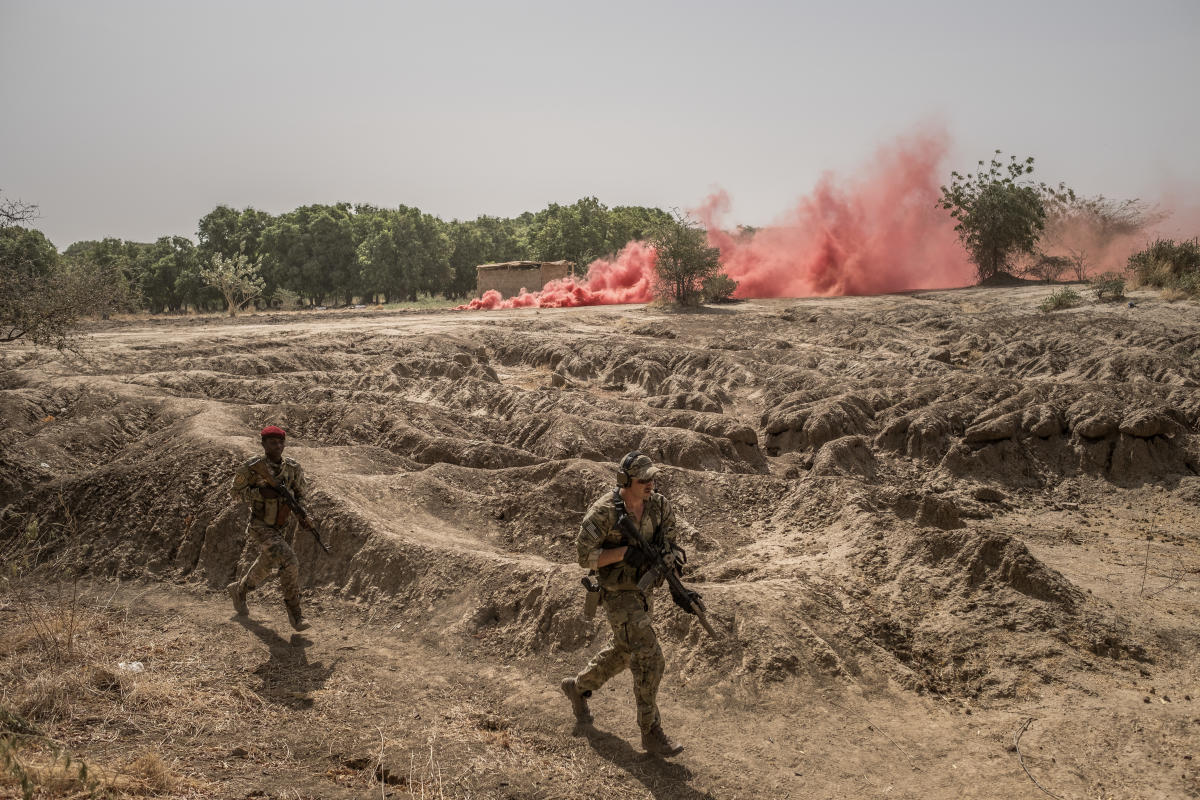WASHINGTON — The Pentagon will withdraw dozens of Special Operations forces from Chad in the next few days, the second major blow in a week to U.S. security and counterterrorism policy in a volatile swath of West and Central Africa, U.S. officials said Thursday.
The decision to pull out about 75 Army Special Forces personnel working in Ndjamena, Chad’s capital, comes days after the Biden administration said it would withdraw more than 1,000 U.S. military personnel from Niger in the coming months.
The Pentagon is being forced to draw down troops in response to the African governments’ demands to renegotiate the rules and conditions under which U.S. military personnel can operate. Both countries want terms that better favor their interests, analysts say. The decision to withdraw from Niger is final, but U.S. officials said they hoped to resume talks on security cooperation after elections in Chad on May 6.
Sign up for The Morning newsletter from the New York Times
The departure of U.S. military advisers in both countries comes as Niger, Mali and Burkina Faso are turning away from years of cooperation with the United States and forming partnerships with Russia — or at least exploring closer security ties with Moscow.
The Kremlin uses persuasion — and other times, coercion — to achieve its aims. The United States warned Chad’s president last year that Russian mercenaries were plotting to kill him and three senior aides and that Moscow was backing Chadian rebels massing in the Central African Republic, to the south. At the same time, the Kremlin was courting sympathizers within Chad’s ruling elite, including Cabinet ministers and a half brother of the president.
The impending departure of the U.S. military advisers from Chad, a desert nation at the crossroads of the continent, was prompted by a letter from the Chadian government this month that the United States saw as threatening to end an important security agreement with Washington.
The letter was sent to the American defense attache and did not directly order the U.S. military to leave Chad, but it did single out a Special Operations task force that operates from a Chadian military base in the capital and serves as an important hub for coordinating U.S. military training and advising missions in the region.
About 75 Green Berets from the 20th Special Forces Group, a National Guard unit from Alabama, serve in the task force. A handful of other U.S. military personnel work in the embassy or in different advisory jobs and are not affected by the decision to withdraw, officials said.
The letter blindsided and puzzled U.S. diplomats and military officers. It was sent from Chad’s chief of air staff, Idriss Amine; typed in French, one of Chad’s official languages; and written on Amine’s official letterhead, two U.S. officials said. It was not sent through official diplomatic channels, they said, which would be the typical method of handling such issues.
Current and former U.S. officials said the letter, which was reported earlier by CNN, could be a negotiating tactic by some members of the military and the government to pressure Washington into a more favorable deal before the elections in May.
U.S. officials said that unlike the U.S. troop departure from Niger, the withdrawal from Chad could be only temporary while diplomats determined whether a new so-called status of forces agreement could be reached, and if so, whether U.S. military advisers would return to Chad. Barring last-minute diplomatic developments, the U.S. troops are scheduled to begin leaving this weekend and complete their departure to Germany by May 1, two U.S. officials said.
While France, a former colonial power in the region, has a much larger military presence in Chad, the United States has also relied on the country as a trusted security partner.
Chad’s presidential guard is one of the best trained and equipped in the semiarid belt of Africa known as the Sahel. The country has played host to military exercises conducted by the United States. Officials at the Pentagon’s Africa Command say Chad has been a major partner in an effort involving several countries in the Lake Chad basin to fight Boko Haram.
“U.S. Africa Command remains dedicated to building enduring partnerships with Chad and other African nations in the Sahel to address mutual security concerns and to help promote a peaceful and prosperous future in the region,” Gen. Michael Langley, the head of the command, said during a visit to Chad in January, according to a statement from the command.
During the trip, the statement said, Langley met with Gen. Abakar Abdelkerim Daoud, Chad’s military chief of staff, and other leaders. Discussions focused on regional security challenges and Chadian efforts to counter violent extremism in the Sahel.
c.2024 The New York Times Company

Amanda Smith is a dedicated U.S. correspondent with a passion for uncovering the stories that shape the nation. With a background in political science, she provides in-depth analysis and insightful commentary on domestic affairs, ensuring readers are well-informed about the latest developments across the United States.







